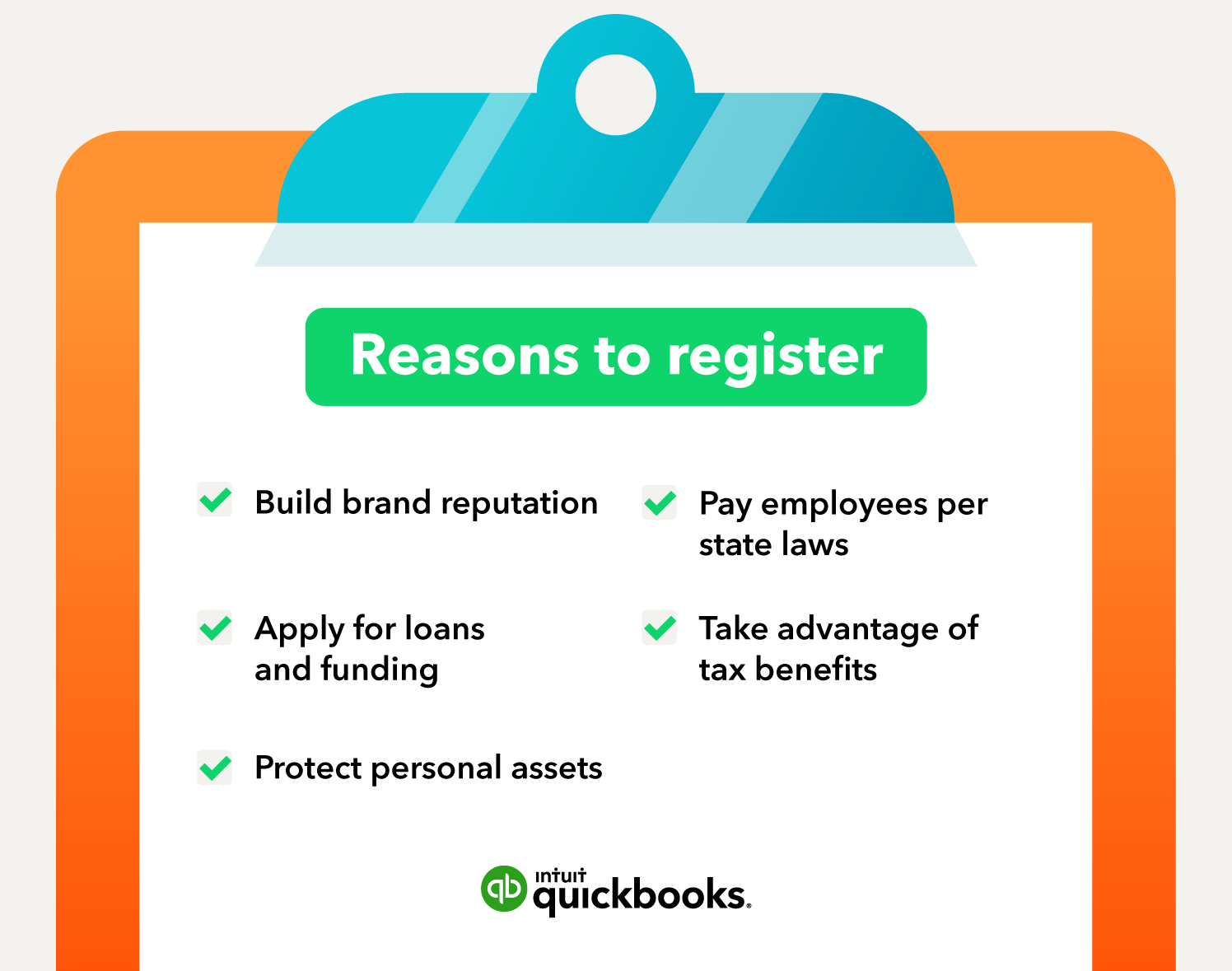1. Choose a business structure
Choosing the right business structure will set you on the right path to success. It influences how you file taxes and how your personal assets are handled as well as having an effect on your day-to-day operations.
It'll also impact how you register your business, including how and who you register with. There are four main types of business structure, so take the time to choose the one that’s best for your business.
Let’s go through the most common business structures that will likely exist in your region or country.
Sole proprietorship
A sole proprietorship is the most common way to structure a business and doesn’t require any formal registration - think of it as an extension of you. There’s no legal difference between you as an individual and your business.
Depending on where you are and what your business does, you may need to obtain the necessary licenses and permits. For instance, if you’re selling food or drinks, you’ll likely need a license. Check the regulations in your country for more information.
As a sole proprietor, you use your own name to conduct business. Depending on where you’re based, you may use your country’s Social Insurance number as your tax ID number.
Another word for sole proprietorship is DBA, or "doing business as." This allows sole proprietors to operate under a name other than their own. For example, if John Smith started a plumbing business, he could file to do business as Smith Plumbing. The DBA designation, like any sole proprietorship, doesn’t offer the liability protection of other business designations, but it’s still valuable for marketing and credibility purposes.
Key takeaway: A solo proprietorship is what your business structure will be considered as by default if you don’t choose one of the other options.
Partnership
A partnership is a business with two or more owners. The most basic type of partnership is a general partnership, in which owners divide all profits and liabilities equally. In addition to a general partnership, other types of partnerships include
- Limited partnership: In this type of partnership, one partner has liability exposure, while the other has limited liability.
- Limited liability partnership (LLP): In such a partnership, all business owners are safe from the debts of the business.
Key takeaway: If you co-own a business, you’ll likely have a partnership business entity.
Depending on your country or region, you’ll need to register your business with your government. Depending on the business structure, one or both of you will be liable to pay taxes.
Private Limited Company
Private limited companies fall somewhere between a partnership and a cooperation business structure. Depending on your country of origin, you may call this business structure a limited liability company (LLC) or a limited company (Ltd).
Private limited companies combine the simplistic tax laws of a partnership with the limited liability protection of a corporation. An LLC can have one or more owners, referred to as "members".
As a member of an LLC, you file taxes as if you were a sole proprietor or partner and all of your business income and deductions pass through to your personal tax return. However, the LLC is a separate entity, so members can’t be held personally responsible for the company’s debts or liabilities.
Because of the need to register for corporation taxes, you’ll need to register your private limited company with the relevant tax authorities in your country.
Key takeaway: LLC status separates personal assets from business liability.
C corporation
These are reserved for medium to large businesses. A C-corp’s income is reported on a separate tax return—and owners, or "shareholders," are taxed separately.
Shareholders hold stock in the company, and formal company proceedings (such as electing a board of directors and assigning board duties) are required. C-corps have tax advantages that other entities don't, but they are more expensive to set up and more complicated to run. This is because both the business owners and shareholders need to get involved in operations. Requirements include submitting state, income, payroll, disability, and unemployment taxes. C-corporations are also required to set up a board of directors to oversee the management of the corporation.
Key takeaway: C-corps are better for larger business as they are more complicated to run and have different tax advantages than other types of business structures.
S corporation
Like C-corps, S-corps offer limited liability protections. However, an S-corp is taxed more like a partnership or sole proprietorship. In other words, income passes through to the shareholders’ personal tax returns. The IRS is more likely to monitor S-corps’ taxes closely, and tax mistakes can even result in the termination of your S-corp.
Depending on the country it's operating in, S-corps need to file the relevant forms with their tax authorities.
Key takeaway: S-corps are taxed similarly to sole proprietorships and partnerships, with the limited liability protection of a C-corp.
A quick guide to legal documents
When you register your business, you’ll need to sign legal documents that link you to the organisation. This will differ depending on your country and region. Typically, you’ll be asked to sign the following documents:
Tax ID Number
In almost every country, you’re required to pay taxes on all your business profits. To operate legally, you’ll need to register with your local tax authority and get an ID number, which you’ll use to pay your taxes when the time comes.
Business Insurance
Depending on where you’re operating, you’ll be legally required to get business insurance in case anything goes wrong. Choosing the right business insurance for your needs depends on your business structure, the number of employees, and your assets.
Business Licenses and Permits
In order to operate legally, you may need to obtain the necessary licenses and permits for your country of operation. Of course, this depends on your small business idea. Check your government website to ensure you’ve obtained the right licenses.
Business Bank Account
To exchange funds securely, you’ll need to get a business bank account. Separating your personal and business accounts won't only help you better organise your finances, but help you stay compliant with the laws and regulations of your country.
Key takeaway: To ensure you sign the right documents for your country, we recommend consulting with a tax professional or legal associate. Alternatively, you can do your own research by logging into your government account.

















